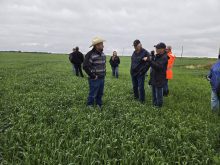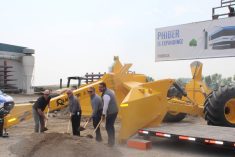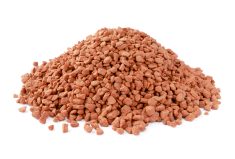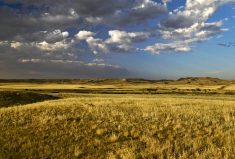Genetically modified (GM) Roundup Ready alfalfa will not be sold commercially in Canada this year and it’s unclear when, if ever, it will be commercialized in Western Canada.
“At this time FGI does not have plans to introduce biotech-enhanced alfalfa traits to growers in Western Canada,” Forage Genetics International (FGI), the company selling the GM alfalfa, said in a “Stakeholder Update” issued last month.
However, the U.S.-based company says work is underway to develop a “hay-to-hay” coexistence plan for the West.
“The goal is to have this plan completed by January 2016,” FGI said. “This Western Canada plan is being developed in response to requests for additional stewardship to address the possibility of product moving from Ontario (and) Quebec to Western Canada.”
Read Also

Mazergroup’s Bob Mazer dies
Mazergroup’s Bob Mazer, who helped grow his family’s company into a string of farm equipment dealerships and the main dealer for New Holland machinery in Saskatchewan and Manitoba, died July 6 from cancer.
Heather Kerschbaumer, president of Forage Seed Canada, which represents forage seed growers, welcomes FGI’s efforts to prevent GM alfalfa from making its way west.
“If they are addressing this it’s all a good thing,” Kerschbaumer said from her Fairview, Alta. farm and seed business. “I think the more planning and discussion and looking at the consequences is a good thing. If we could be involved in some way we are definitely interested in being part of it.”
Forage Seed Canada along with hay exporters and organic farmers are worried that once commercialized Roundup Ready alfalfa will hurt their businesses, because, according to them, it will be tough to keep GM and non-GM alfalfa segregated. Alfalfa is a perennial crop that grows wild in ditches and on uncultivated land. Bees and wind spread its pollen.
Seed growers and hay exporters fear they’ll lose markets in countries where buyers don’t want GM crops.
Coexistence
A coexistence plan aimed at preventing Roundup Ready alfalfa from spreading in Eastern Canada was created in 2013.
FGI says its stewardship plan in the U.S. “has allowed organic, conventional and genetically modified (GM) alfalfa farmers to coexist, regardless of the production method they choose.”
Although FGI won’t sell Roundup Ready alfalfa in Eastern Canada this year it will allow 20 farmers — eight more than last year — to grow 20 to 30 acres for demonstration purposes.
“Feedback gathered from farmers who participated in the 2014 on-farm field trial program confirms that Genuity Roundup Ready alfalfa delivers outstanding weed control, superior crop safety, quick stand establishment and vigorous growth, reinforcing that the Roundup Ready technology has been incorporated into FGI’s very best seed genetics,” FGI said.
In addition, two “small-scale research trials” in the East will include FGI’s newest GM alfalfa, HarvXtra, which is the Roundup Ready trait, stacked with a reduced lignin trait. The latter produces alfalfa with better nutritional and digestability benefits for cattle. Canadian regulators approved HarvXtra alfalfa in December.
“At this time, FGI is considering the potential for commercial seed sales of HarvXtra alfalfa with Roundup Ready technology in Ontario and Quebec only,” FGI said. “That decision is confined to the sale of seed. Companies would not be permitted to undertake any Genuity Roundup Ready alfalfa or HarvXtra alfalfa with Roundup Ready technology seed production in Canada. All seed production would take place in the U.S., with only commercial sales for hay production allowed in Canada.”




















